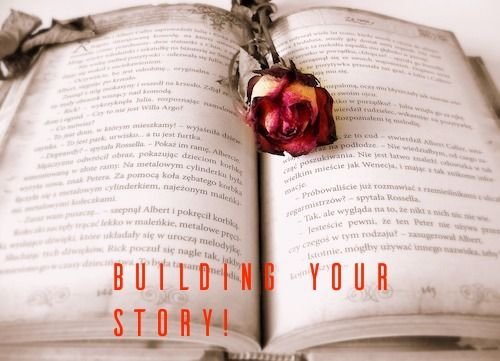
These are questions to ask yourself before building your story. In essence one person can indeed just open up and write from the gut. You are going to do that anyway, so why not have a bit of structure for your story. We can better understand story by structuring it. You can indeed pitch better at a sales meeting in regards to your novel or book. Today, I am just putting this out there. So enough tough let's get started with your story, novella, or novel.
What is the setting of the story?
Who is your hero?
Why do we care/empathize about or for your hero?
What is your hero trying to accomplish.
Who or what is trying to stop your hero?
What happens if your hero fails?
Why should we loathe the villain?
What is the central conflict of the story?
These are the eight basic questions that will get you started.
Now that we have these on the menu. Let's digest these a bit more closely.
1.Setting: The time period. It is the future? It is the past? Is it a small southern town? Where is the story set and where does it take place?
2.Who is your hero? Who are they, he, or she?? What's their job description? Do they have a habit? Do they have pain to carry? What makes them strong? What makes them weak? What makes are their opposite lessons?
3.Why do we care/empathize about or for your hero? What makes us connect and feel sorry for the hero? What makes us connect and empathize? What qualities do we see in them that strike at our hearts? Can you put your character through pain?
4.What is your hero trying to accomplish. Is he trying to blow up the death star? Save the rebellion? Does he save Nakatomi Plaza tower? Frodo comes back to the Shire with more friends and relationships! Then the undying lands.
5.Who or what is trying to stop your hero? Darth Vader? A Twister? The Grey Wolf? It does not have to be human. It can be a force of nature. It can be a villain. We just have to make it passionate and powerful.
6.What happens if your hero fails? What explodes if the hero does not make it? Does the girl die? Does an entire city crumble? What is at stake here? I hate saying stakes. What happens as a repercussion?
7.Why should we loathe the villain? What makes us hate the villain? Does he destroy an entire planet? An entire city? Does he destroy all that is good? Is he convinced he’s the real good guy? Does he have unlikable/likable qualities that are counter to the hero? Can he be merciless, even to the innocent people? Can he be cunning and persuasive?
8.What is the central conflict of the story? Is this man vs. himself? Man vs. tornado? Man vs. society. Man vs. The system. Man vs. man? Man vs. the supernatural world? In Hamlet the very conflict that exists is that he wants to avenge his father’s death, and looks for evidence to justify his killing.
So there you have it. I enjoy telling stories. Understand that these principles are never black and white. Inside the story we can contain gradations. That is a series of successive changes of character. Telling a story is important. Now, keep in mind this may look formulaic. You could indeed check out my older post on that. In-between formula and no formula is where you want to be. The map is not the territory. Good luck.
Great post, thanks for sharing! I gave you a vote. I hope you enjoy it.
Thank you.
Like your story. Thank you for shearing
It was not a story, yet it was a story structure.
My writing group and I often go back and forth about questions like these Ad nauseam. Like for example your #7 Why should we loathe the villain?
Well, what if the villain is not so loathable? Does he have redeeming qualities? Can he be redeemed in the final chapter or will he show his/her true colors?
Best to you,
Joe
Check out my own writings @joe.nobel
You can take me, but you cannot take my bunghole.... For I have no bunghole....
Understand that these principles are never black and white. Inside the story we can contain gradations. I believe that is what you are referring to.
Yes, exactly!
Remember these words. Good stories make you think. Great stories make you feel.